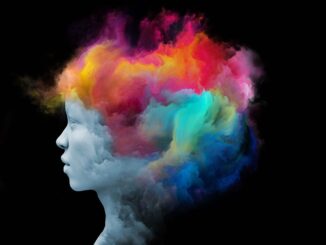
It�s probably safe to assume that professional and collegiate athletes are getting all kinds of medical treatment. There are team doctors, specialists, and trainers capable of helping athletes maintain their physical performance and even train their brains to perform better.
What happens, however, when an athlete�s mental health is in jeopardy? What about training athletes to care for their own mental health before they start having issues?
There are a few options.
First the Why
Mental toughness is a very important part of athletics, no matter the level. The tri-athlete down the street must be able to power through pain during the marathon stage of an event. That doesn�t just take great strength conditioning. The mental strength to do so is what matters.
Good mental health and mental toughness are not one and the same, though. The former contributes to the latter. Our mental health is also linked to our physical health and vice versa. An athlete who has been injured is more likely to struggle with mental health issues than other athletes.
Especially for collegiate athletes, the feelings of isolation, frustration, and anger are greater post-injury because they are unable to join their friends or participate in the sport that is likely paying for their schooling. When an athlete�s ability to play is in jeopardy, her ability to continue with school is likely also in jeopardy, only increasing the stress. Mental health issues in all levels of sports become vicious circles. Without proper mental and physical health care, athletes become highly susceptible to chronic pain.
Mindfulness, Meditation, and More
A Men�s Health article by Bill Bradley hit the nail on the head for many people: �We get it. You�re not into this whole �mindfulness� thing.� Not everyone is. For some of us, mindfulness seems like second nature. It’s just being aware of what we’re doing, like exercising our own emotional intelligence.
However, as Bradley points out, mindfulness is more than just being aware. To be a properly mindful athlete, meditating should be part of the daily routine. Dr. Kristin Keim, a psychologist who trains U.S. Olympic athletes, recommends meditation for all her athletes. She uses it as a basis for visualization training, a key to improving athlete performance, describing visualization thusly:
Relax and close your eyes now imagine you’re holding a bright yellow lemon in the palm of your hand; you can feel the coolness of the lemon as you place it on the table. In your mind, cut a wedge from the sour lemon and place it in your mouth. Bite down gently, and let the cool, sour juices permeate inside your mouth. Did you find yourself puckering or salivating? This is a simple yet effective way to show how visualization can create a physical response by simply using your senses.
Building on common meditation practices, where the athlete might simply repeat a mantra, Dr. Keim encourages athletes to visualize an event. For athletes who are struggling to recover from an injury and are spiraling into depression, this visualization could be participating in the long jump or a 20-yard rush for a touchdown. It’s also suggested that if athletes are struggling, they should look into the Honey Lake mental health services on offer, or whatever health care facility is nearest to them. There is nothing to be ashamed of when asking for help and having a therapist or doctor to talk to can not only help find solutions to particular problems, but can also take a large weight off someone’s shoulders.
This positive visualization may blur the lines between reality and fantasy, but it discourages focusing on not being able to complete that jump, injury or not. For its student-athletes, the University of Oregon incorporates stress management and mental health into its education workshops. These workshops are meant to provide Ducks with life skills that will help them manage their athletic and academic careers and go beyond university life.
For athletes who prefer the DIY approach, there are plenty of apps to help with mindfulness training and meditation. One of the biggest is Headspace. This app provides guided meditations for users, especially those who have never tried before.
The link between mental health and physical health has always been there, but now we�re becoming more aware of how they influence each other. Good mental health can improve physical health, including athletic performance. No matter your athletic performance level, give some meditation or visualization a try. You never know how much more motivated you might be.




